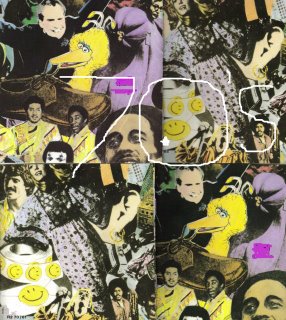
The 1960’s are usually the decade you think of when you think of a decade of change. However, there were a lot of changes in the 1970’s. Pop and Rock had been considered one form of music in the 60’s but in the 70’s they were starting to take different directions. Pop was becoming mellower and would be called bubblegum music by some. Rock was headed down a harder and darker path that would lead others to call it acid rock or album rock and later heavy metal. As you can tell most of the music listening public had become more open to musical experimentation. In the 70’s science fiction was starting to become science fact as man had just walked on the moon. While NASA was revolutionizing the known world the computer industry was doing the same to the recording industry by replacing transistors with integrated circuits when they combined different transistors onto a single chip. With this advance the recording industry went from 2 tracks to 32 tracks. It was able to put millions of cassette tapes in the hands of teenagers by the end of the decade. Synthesizers went from being huge monsters having a laborious process just to get it started to becoming smaller and having a nearly limitless variety of sounds. With this new advance in technology heavy metal almost became the norm in music for the 70’s but it also allowed for another form of music to rise to the front. That was Disco. With the turbulent 60’s behind us and a just as difficult decade ever present the country was tired but ready to party! Thanks to the new technology Disco and Rock had great electronic keyboards, lasers and, with disco music, a heavy intense precise rhythm.
In many ways the 70’s began with endings. The Beatles began to come apart when Paul McCartney announced in April of 1970 that he was leaving the group. It was perhaps the end of one of the most productive periods of pop/rock music history. Simon and Garfunkel, one of the most successful duos of folk rock music, broke up. For Monkees fans 1970 was sad when Mike Nesmith left and the group was down to a duo for its last album and that album, Changes, was only done because the Monkees were under contract for one more album. Rock legends Janis Joplin and Jimi Hendrix died of a drug overdose. Many would say the end of Rock music as my generation knew it came in 1976 when the King of Rock, Elvis Presley, also died of a drug overdose that year.
The 1970s was also the end of another form of music. That was the protest song. The 1970’s reached it’s height with mass protest and sit ins at colleges and high schools (My high school Lloyd Memorial had a sit in but I was not a student there at the time.) when 4 students were killed at a protest at Kent State University. Reality was starting to set in for students who graduated in the 60’s and some were actually joining the military or they were being drafted. In 1973, partly thanks to those protests, a cease-fire was signed and the Vietnam War came to an end.
Just like our current decade the 1970’s dealt with problems in the oil industry. There was an oil embargo in the Middle East and the cost of petroleum quadrupled and since it was an ingredient in the production of vinyl the cost of buying a record went up. The recording industry made cutbacks. They cutback on the perqs for their stars and slashed their roster of artist. They slowed their development of new talent and tried to get as much as they could out of their current artist. In the 1960’s you would have two types of recording artist. One type would be the super groups like the Beatles who could sell albums and singles. Another would be one like Gary Lewis and the Playboys who could have hit singles but their albums didn’t sell as well as the super groups. With cuts being made more concentration was given to super groups who could sell albums. You got more bang for your buck with them.
Later in the 70’s there was a sort of second wave of the British Invasion but we will discuss that later as I have run out of time for this posting.


No comments:
Post a Comment